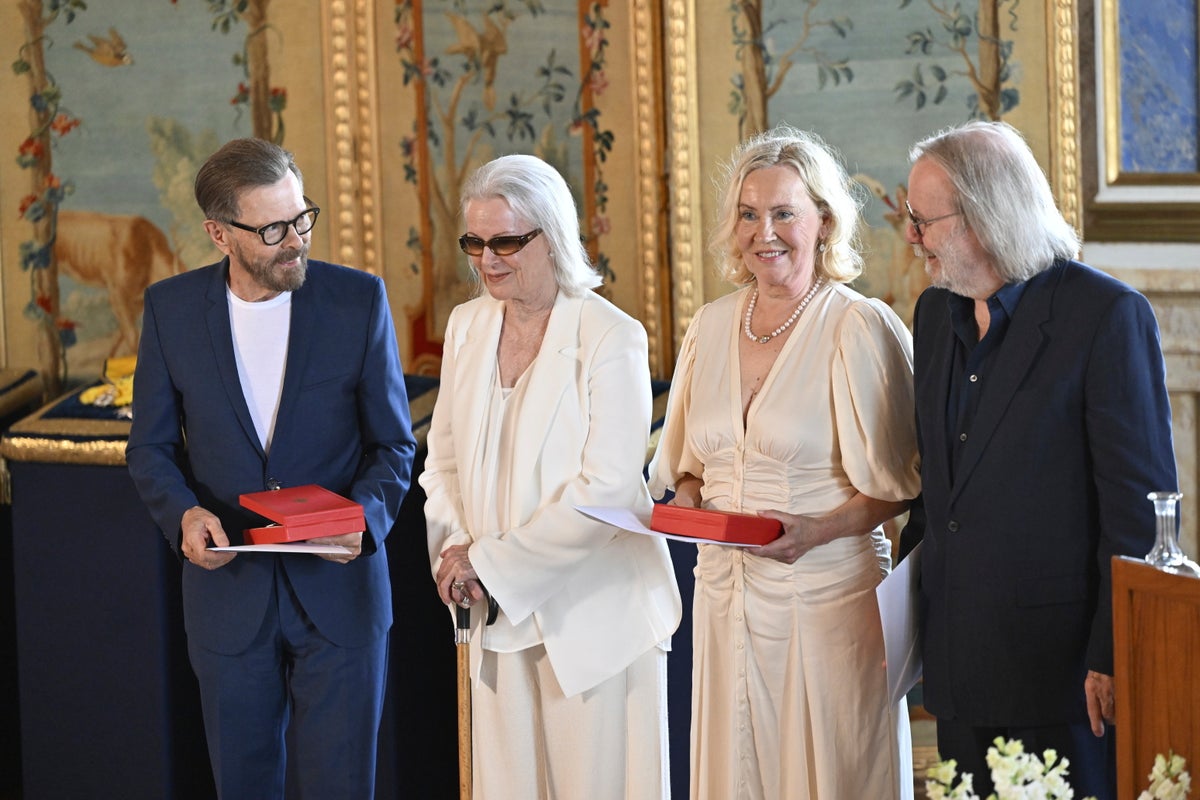
Swedish supertroupers Abba have received one of their country’s most prestigious awards, after being feted with an honour of chivalry that was last handed out by their monarch almost 50 years ago.
The iconic pop group were recognised by King Carl XVI Gustaf for their cultural impact, which saw them propel Swedish music to the global stage after their Eurovision triumph in 1974, on Friday 31 May.
The band, comprising Benny Andersson, Agnetha Fältskog, Anni-Frid Lyngstad, and Björn Ulvaeus, made a rare public appearance together in Stockholm, where they were knighted with the Royal Order of Vasa for “outstanding efforts in Swedish and international music”.
It is an honour that had not been bestowed on a Swedish citizen for half a century, until the practice was restored in 2022. Abba’s four members were among 13 figures who were celebrated on Friday, in a first since the process reopened two years ago.
Candidates were nominated by both the general public and the Swedish government, with the ultimate honorees selected by the king himself, who handed out the knighthoods to Abba alongside Queen Silvia.
Abba’s rare public appearance comes after their “Abbatars” made an appearance at the Eurovision Song Contest in Malmö last month, which marked 50 years since their historic win with “Waterloo”.
Their victory set off a string of hits for the band that includes “The Winner Takes It All”, “Money, Money, Money”, “Dancing Queen”, and “Mamma Mia”.
Despite not performing live since 1982, Abba remain one of the world’s most successful pop acts, selling more than 400 million albums and singles. In 2022, they became the focus of a purpose-built arena in London where the Abba Voyage concerts use digital avatars of the musicians.
At a London Q&A on 30 March celebrating the two-year anniversary of Abba Voyage, which took seven years and $175m (£138m) to develop, Andersson and Ulvaeus said it was “very hard” to emotionally grasp the impact of their music around the world.
“It’s very, very hard to grasp emotionally that we wrote these little songs and it gave rise to this, and the millions of people we have touched,” Andersson said.
“We know it’s true, but it’s very hard to understand. Maybe impossible.”
Ulvaeus added: “I’ve seen the show so many times and I think we look good up there. But I have no idea what it really is that makes people have it in them to want to listen to music that was done 50 years ago, 40 years ago, 30 years ago.”







